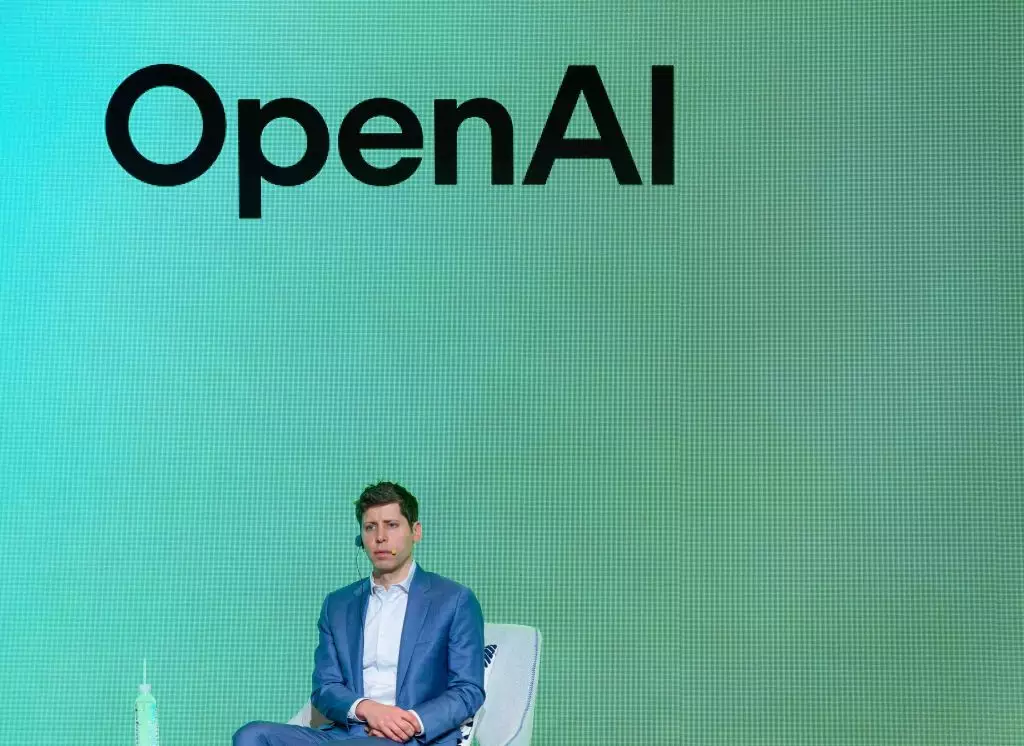The contentious legal saga between OpenAI and its co-founder Elon Musk illustrates a striking clash of visions in the rapidly evolving landscape of artificial intelligence. This struggle is not merely one of personal rivalry; it embodies the broader debate about the ethical direction of AI and the implications of capitalist interests in technology that once aimed to serve humanity’s collective good. Musk’s pointed allegations against OpenAI—that it strayed from its nonprofit commitments—serve as a reflection of his own misgivings about the trajectory of AI development under a profit-driven model. However, this confrontational approach raises vital questions regarding Musk’s motives and the potential ramifications for the realm of AI innovation.
Legal Maneuvering: The Counter-Suit’s Headwinds
In its latest filings, OpenAI has adopted a resolute stance against Musk’s ongoing legal and public relations campaigns, characterizing his behavior as a detrimental force. Their plea for an injunction against Musk describes a scenario where his actions have not only harmed the company’s reputation but threaten to destabilize the very framework intended to govern AI for the public good. OpenAI’s attorneys highlight the paradox of a founder-turned-adversary: a person who once championed the organization’s altruistic aims now appears to act out of self-interest. The corporation asserts that Musk’s maneuvers—especially the orchestrated fake takeover bid—represent not just legal challenges but existential threats to the institution’s ability to fulfill its mandate.
Shifting Commitments: Nonprofit to Capped-Profit
OpenAI’s evolution from its inception as a nonprofit to a capped-profit entity and now its potential return to a public benefit corporation reveals the complexities of funding and resource allocation within the technology sector. Musk’s original vision was grounded in the principle that AI should serve humanity, but as OpenAI transitioned its operational structure, critics voiced concerns that this shift undermines its foundational mission. The organization faces intense pressure, particularly as it races against time to finalize this transformation, which it claims is necessary to secure significant capital for future advancements.
With high-profile entities like California Teamsters and Encode opposing OpenAI’s restructuring, one can’t help but ponder whether the company’s narrative of striving for a balance between profit and altruism holds water. Their narrative suggests a commitment to charitable initiatives across health, education, and science sectors, but detractors question whether these aspirations can coexist with a profit-oriented model. The unfolding events portray a company on a tightrope, balancing potential growth with ethical integrity.
Musk’s Role: From Pioneer to Adversary
Musk, known for his audacious ventures and digital presence, seemingly shifted from a pivotal ally of OpenAI to its most formidable challenger. His accusations about the organization’s detachment from its original mission may highlight genuine concerns about ethical governance in AI but also reflect his competitive nature and his desire to influence the trajectory of this technology in favor of his interests. However, his tactics raise eyebrows; are they genuinely aimed at safeguarding public interest, or are they an attempt to reclaim influence over a domain that has sought independence from his control?
The court’s decision to allow this case to proceed to trial illustrates not only the legal intricacies but the broader societal implications of the outcomes. Musk’s initial support for OpenAI raises critical questions about accountability, fidelity to foundational missions, and the ethical responsibilities of innovators who occupy powerful positions in the tech landscape.
A Cybernetic Future: Where Do We Go From Here?
As this case develops, the broader discourse surrounding the ethical ramifications of AI grows ever more critical. The clash between Musk and OpenAI is emblematic of a tension intrinsic to the tech industry: the dichotomy between innovation driven by altruism and that fueled by profit. The legal confrontation serves as a microcosm of the larger ethical dilemmas facing society at large in navigating the governance of emerging technologies. As the world increasingly places its trust in AI, the responsibility that entwines creators, benefactors, and policymakers has never been more significant.
Should OpenAI ultimately prevail and establish itself as a responsible steward of AI, it may prove to be a watershed moment for tech companies transitioning into profit-centric structures while retaining their commitment to societal welfare. Conversely, if Musk’s allegations ignite broader skepticism about the motives and integrity of AI organizations, it could recalibrate public expectations and regulatory standards in this nascent industry. In the end, the stakes are not just personal; they are a reflection of our collective future amidst the rapid evolution of artificial intelligence.

